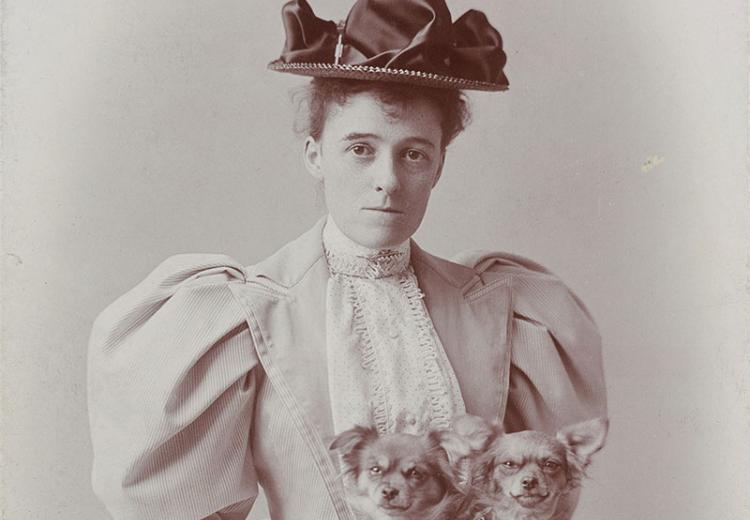Personal or Social Tragedy? A Close Reading of Edith Wharton's Ethan Frome

Photograph of writer Edith Wharton, taken by E. F. Cooper, at Newport, Rhode Island.
"…after all, the tragedy unveiled to us is social rather than personal… 'Ethan Frome' is to me above all else a judgment on that system which fails to redeem such villages as Mrs. Wharton’s Starkfield."
—Literary critic and author Edwin Bjorkman
Readers of Edith Wharton’s Ethan Frome (1911) can hardly fail to be moved by the suffering of the title character. Ethan is, quite literally, a physical and emotional wreck. His misery captivates the narrator. Indeed, the whole body of the novel represents the narrator’s effort to reconstruct the tragic circumstances of Ethan’s life. Yet even as the story concludes, we are not quite sure what or who to blame for Ethan’s ruin. Was Ethan ruined by his personal problems (his loveless marriage) or by “the crushing, choking atmosphere” of his social environment? Had Ethan been able to express his love for Mattie, could he have lived happily in Starkfield?
This lesson will challenge students to weigh the textual evidence for and against the claim that Ethan’s woes lay in staying in Starkfield—and not in the details of his personal relationships. In the process, students will engage in a close reading of pre-selected passages from the novel, along with a few passages of their own choosing through at-home reading journals. These close reading exercises will culminate in an in-class debate and possibly the crafting of a short argumentative essay, in which students will have an opportunity to respond to Bjorkman’s thesis.
Guiding Questions
Is Ethan’s story a personal tragedy born of his indecision and personal failures, a social tragedy forecast by the oppressive New England setting, or both?
Learning Objectives
Situate Ethan Frome within the context of American regionalist literature.
Gather, annotate, and analyze key quotations from Ethan Frome.
Respond to contemporary reviews of Ethan Frome.
Use textual evidence to support their own claims about the plight of the novel’s protagonist.
